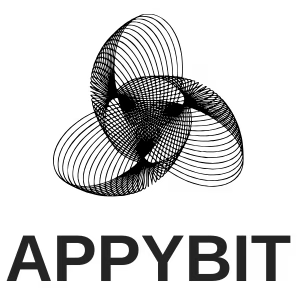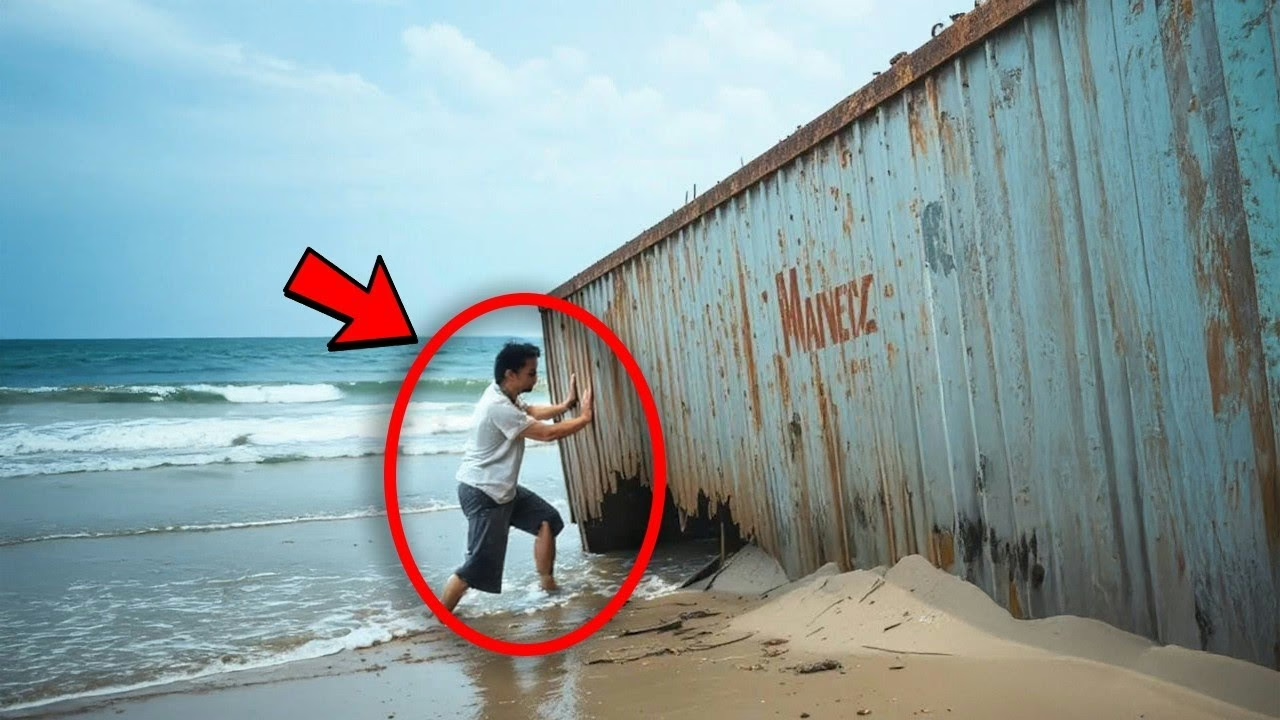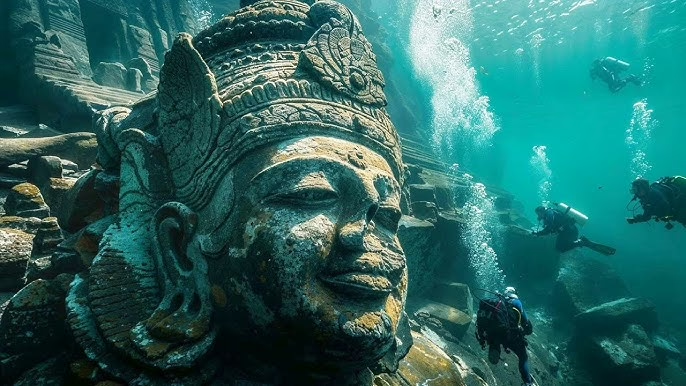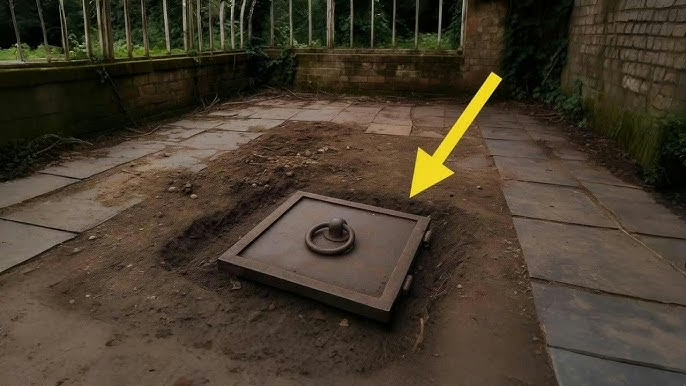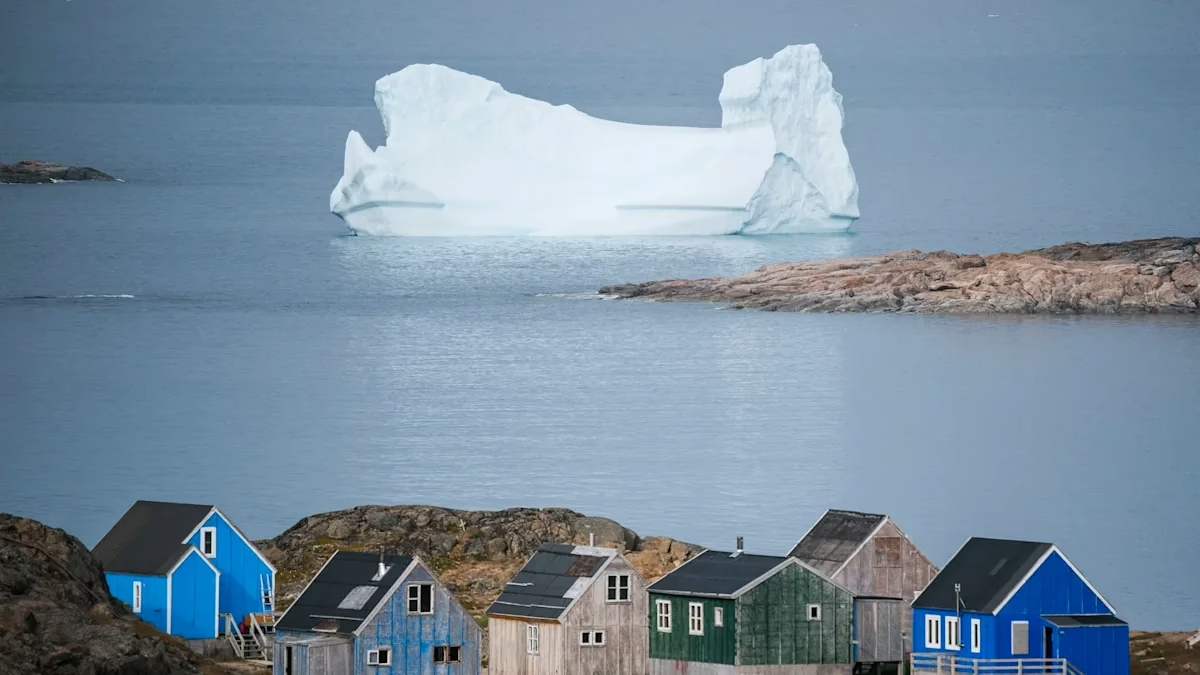The Morning the Sea Breathed Different
At first, it was the smell.
Miguel Rodriguez had known the ocean’s moods all his life—the briny lift at dawn, the diesel trace from far-off ferries, the yellow tang of drying seaweed. But that morning, threading his small banka between chalk-white reefs in a remote chain of Philippine islands, the air carried a warm, sweet whisper he couldn’t place. It rode the breeze in shy pulses, like a memory trying to surface.
Miguel squinted past the glare. The ordinary things were all in their places—flying fish skipping like silver prayers, a lean heron perched on mangrove roots, the distant roar where swell met reef. Then he turned a tight corner around a black-rock promontory and saw the thing that didn’t belong.
A colossal metal rectangle lay half on the beach, half in the shallows—a full-sized shipping container, barnacled and sun-scabbed, its once-blue flanks rusted to the color of dried blood. Waves hissed under it, burrowing channels in the sand. Every crest rattled the box, and it answered with a dull, ancient groan.
Miguel cut the outboard. The world became gull cries and slack water and his own heartbeat. He poled the banka in, grounding on powder-fine sand. For a long minute he did not move, as if sudden gestures might wake whatever slept inside that iron coffin.
Then he hopped out, water curling around his calves, and went to meet his fate.
II. A Life Measured in Tides
To understand why Miguel stepped forward when any prudent man might have backed away, you have to understand the math of his life.
Miguel was a small-scale fisherman from a village where dusk and dawn were currencies, where the ledger of each day was kept in net weight and weather. The boat he owned—narrow, wooden, with bamboo outriggers—wasn’t just a tool; it was collateral against hunger. On good mornings he returned with grouper, jack, squid, and stories. On bad ones, he returned with silence.
Electricity came and went like wind. The market’s prices were set by men who never smelled low tide. And always, always, there was the other calendar beyond the moon—typhoon season—when the sea taught your children the language of loss.
Storms were teachers and thieves. They tore off roofs and friendships, scattered boats like toy bones across the lagoon. They also shook the world’s long supply chain like a box of matches. Everyone in Miguel’s life knew the rumors: containers lost overboard in monstrous seas, some sinking into black trenches, others bobbing like iron whales for months, years, until currents or fate escorted them to some lonely shore.
Most of the time, those stories were just that—stories told over cheap coffee in the market’s shade.
Until the morning the sea breathed different.
III. The Box on the Sand
Up close, the container wore a hard life openly. Barnacle wreaths ringed the lower corners. Kelp scars slashed diagonally like the marks of a patient beast. Whatever shipping line’s logo had once advertised itself to the horizon was now nothing but faint ghosts beneath rust.
Miguel walked its perimeter, fingertips brushing flaking paint, and found the doors—two heavy slabs ribbed with steel, held by a corroded padlock that looked fossilized in place. He checked reflexively for numbers, for the stamped code that gave a container its identity. There—faint but legible—a serial trembling under years of salt.
Curiosity lit the fuse. Need was the dynamite.
The tools he had were the tools of his life: a machete honed by a thousand lines cut and a beach stone chosen by instinct more than reason. He worked under noon’s hammer, sweat stinging his eyes, the steady clink-clink-clink of metal on metal keeping time. The lock fought like a bad memory. Then it didn’t.
With a small dying shriek, the shackle snapped.
He pried the doors. They swung open with a long iron sigh.
At first, all he saw were boxes—tall, water-stained cardboard towers stacked to the roof against steel ribs. He slid the machete’s tip under tape, levered a flap, and broke the breathless seal. Inside, a thick plastic bag winked up at him, clear and tight and clean in a way the ocean should have swallowed long ago.
Through the plastic, he saw pods.
Long. Dark. Oily. Thousands upon thousands, glossy as fresh wood and fragrant in a way that reached out and touched his childhood—a bakery on market day, warm custards, a teacher’s birthday cake brought in a dented tin. The sweetness that had ridden the breeze all morning rose now in a wave so pure it staggered him.
Miguel didn’t need a book to name it.
Vanilla.
Not extract. Not flavoring. Beans.
A treasure you could smell.
IV. The Most Patient Spice on Earth
The world calls vanilla “ordinary” only because it doesn’t know her story.
Vanilla is born of an orchid—a modest greenish-yellow bloom with a diva’s demands. Each flower opens for one day only. Miss that window and you miss a harvest. Outside a sliver of native habitats, bees won’t do the job; human hands must. Skilled fingers must lift a membranous veil and marry pollen to stigma in a gesture so precise that “work” is too crude a word for it.
Then: waiting. Months of swelling pods green as limes. Then the ritual—sweating, drying, wrapping, resting—where chlorophyll surrenders to chocolate, where grass becomes perfume, where wax and time conspire to anchor hundreds of aroma compounds in a single narrow pod.
All of that care—the census of dawns, the arithmetic of patience—is why real vanilla is second only to saffron in price. It is a spice with a biography. A luxury born in humidity, failure, and faith.
Standing in the shade of an iron whale, Miguel understood only what a lifetime had taught him: things born of honest labor are expensive, fragile things cost more, and anything sweet that survives the ocean must be blessed.
His hands began to shake—not with fear, but with the weight of possibility.
V. The First Crossing
A single banka cannot swallow a shipping lane. Miguel loaded what he dared: four boxes to test the weight, three more when courage thinned the math, and a final awkward fifth as greed argued convincingly with balance. He lashed them down, kissed the container doors for luck (a habit his mother would have mocked, then copied), and pushed off.
The sea did not blink. Reef finches flitted. Sun painted the water a bureaucrat’s blue.
But a new enemy stalked him on the ride home: imagination. He saw the plastic bags tear, the pods wash overboard like long drowned eels. He saw a patrol boat’s blue light and a stern face asking crisp questions he could not elegantly answer. He saw—worst of all—his wife Anya’s eyes if he returned with nothing but a story.
He did not return with nothing. He returned with a smell that stopped the neighborhood.
Anya came running, then slowed, as if the air itself had grown syrup-thick. She pressed a hand to her mouth. The children stood as if the ocean had changed languages. Women from the nearest huts drifted in like moths to candlelight.
“What is it?” someone whispered.
“Vanilla,” Anya said, as if naming a saint.
VI. Between Law and Luck
Miguel was a law-abiding man because men who can’t afford lawyers must be.
He called the Coast Guard. He called the barangay captain. He called a cousin who knew a shipping agent who knew how to squint at rusty numbers. People in crisp uniforms took photos. People in sandals took more photos. A small procession of a planet’s bureaucracy began to revolve.
Here is how the world explained itself to Miguel: containers fall; typhoons take what they want; shipping insurers keep ledgers more complicated than old fishermen’s hands. They traced the serial number through international databases and found a match—lost at sea during a Category 5 three monsoons ago on a route that touched ports with names that turned Miguel’s breath into fog: Tanjung Pelepas, Fremantle, Durban.
Then came the bit no one expected. For reasons known only to offices far away, the owner had never filed a claim. No payout. No police report. No chain of emails in which someone apologized in dead language for a million-dollar shrug. On paper, the world’s spine had shrugged and moved on.
In maritime law, some words arrive like weather. “Abandonment.” “Salvage.” They sound simple and are not. But over weeks—while the container squatted patient as a sea turtle on the remote beach—forms were stamped, notices were posted, and the clock that laws love best was allowed to run its quiet course.
When it stopped, the local court wrote a few paragraphs that rerouted Miguel’s life:
The cargo is abandoned.
The finder acted in good faith.
Legal title transfers to Miguel Rodriguez.
The day that paper came, Miguel held it like a baby that had finally decided to cry.
VII. The Number That Didn’t Fit
Spice graders came from the city in trucker caps and clean boots, carrying moisture meters and a set of soft hands. They slit a bag, rolled a bean between fingers, bent it and watched oil bead in black tears. They nodded. They wrote.
The beans were Madagascar-type, rich and plush, with the fat, creamy bouquet chefs swear wraps around fat and fruit like a warm arm. The vacuum seals had held. Loss to brine: minimal. Microbial risk: low. Export quality: high.
Then someone said a number in a voice that wasn’t cruel but wasn’t careful, and the room hiccuped.
Miguel didn’t grasp the jargon but he understood scale. Not many men have ever stared at a number and felt their spine try to redraw itself. When the smoke cleared, the figure sat steady:
₱7.9 million in beans at wholesale (about $142,000).
He did what men do when the floor moves. He laughed. Then he cried. Then he breathed until the world’s edges stitched back.
It would have been easy—expected, even—to stop the story there. A poor man is handed a luck so loud it echoes. He buys a loud truck. He disappears behind a high gate.
Miguel did not disappear.
VIII. How a Scent Becomes a Strategy
The first pledge was simple: his children would never again have to choose between school and dinner. The second was harder: no one eats alone.
He took a portion—enough to secure dignity without poisoning judgment. With the rest, he began to build a cooperative the way fishermen build mornings: together and with arguments that begin at dawn and end by lunch.
He bought two bigger boats, fiberglass and safe, with engines that didn’t choke at the sight of a swell. He hired crew from the village, paying fair wages even when that pinched. He invested in cold storage and ice that didn’t melt like a promise. He brought in a trainer to teach sustainable methods—mesh sizes that let juveniles live, reef-friendly moorings, seasonal closures that honored the old stories the elders told in a tone that said: we learned this the hard way.
He carved off a slice of capital to explore what the wind had delivered: he co-founded a tiny vanilla-curing pilot with an agricultural NGO up-island. They trained two dozen growers to trellis vines beneath coconut shade, to wake before the heat and hand-pollinate blooms that open like shy secrets, to sweat and dry beans until they wept gloss and pride.
“Let the thing that found us teach us,” he told the room the first day. “Let sweetness require patience.”
IX. The Village That Changed Its Mind
Prosperity is a perfume with side effects. It can make you dizzy. It can make you fight about things you can now afford to fight about.
There were grumbles. Some said the sea had not given the box to Miguel but to everyone. A few cousins who had not held the stone or swung the machete asked loudly about fairness. A Manila buyer arrived offering cash that smelled like a trap and sunglasses that hid too much.
Miguel’s answer was transparent as the plastic bags that had saved his fortune: numbers on a board outside the co-op office—prices, wages, profits, reinvestments—chalked every Friday afternoon by a woman whose eyebrows brooked no nonsense. He held open meetings at which tempers ran, then ran out. He signed long-term agreements with reputable spice distributors who did not treat rural suppliers like a rounding error. He insisted the co-op keep a fund to help rebuild houses after storms, because he knew the sea did not care how neatly you printed receipts.
Slowly, the village learned a new rhythm. Nets mended in shade where arguments had once slept. The market’s laughter changed octave. Children wore shoes all week, not just on Sundays. The church smelled faintly of vanilla at Christmas because Anya had learned to infuse brown sugar for the lechon glaze and refused to apologize.
And on nights when the wind died, people sat outside and told the story. The metal whale. The sweet air. The cracked lock. The first bean bent until it wept.
X. Where the Box Came From (and Why It Matters Less)
Months later a man with ship-tracking maps and a doctoral smile visited, tracing currents like veins across glossy blue. He pointed to broken lines in the Philippine Sea where typhoons write their violent cursive. He spoke of stack heights on mega-carriers, of lashings that fail, of paperwork that does what people tell it to do. He concluded what the record already had: no claim filed, no one coming for the box, the world shrugging in a thousand busy offices.
Miguel thanked him sincerely. The man left behind a laminated map the children loved. The map did not change dinner.
Here is what did: the smell in the school kitchen; the new clinic with a working refrigerator; the way grown men paused before shouting, because shouting wastes breath and breath costs money you might need for fuel.
If the sea had chosen a different box—cheap towels, broken microwaves—the story would have had different pages. But it had chosen vanilla, and that choice taught a lesson more durable than law: luxury can be ethical if it insists on sharing.
XI. The Day the Container Finally Left
A storm with a forgettable name gathered low and muscular to the east. The Coast Guard asked politely, then firmly, that the container be removed from the beach before it became a battering ram. A tug came, snorted, and hauled the iron whale away, leaving an absence that looked briefly like grief.
In the sand where it had sulked for months, the village held a small festival. They roasted fish and sweet potatoes. The elders told a story that began before paper—of a god who loved sugar and hid it in ugly places to teach humans to search together. Children slept on parents’ laps while guitars braided with waves.
Miguel stood at the waterline a long time after the last drum fell quiet. He thought of the lock’s shriek, the first soft breath of sweetness, the way his wife’s eyes had widened and steadied. He thought of typhoons and insurance and maps and chalk on boards and men who had almost learned how not to yell.
He thought of the sea—not as a friend or enemy, but as a force—and he whispered a thank-you he did not expect to be heard.
XII. Epilogue: The Fragrance of Work
Months became seasons. Vanilla vines in shaded clearings crept and curled, teaching patience to hands already fluent in it. The co-op paid bonuses when stocks ran low and prices ran high. The clinic stitched fishermen who forgot the reef’s sharp alphabet. Anya’s recipe for vanilla-lime bibingka won a festival no one had known was a competition until it was.
Sometimes, on market days, a stranger would ask Miguel if he still had any of the original beans. He did not. They had become engines, not souvenirs. But he kept one empty plastic bag in a cedar box. On hard days he opened it and breathed in a ghost sweet as forgiveness.
People want stories to end neatly. They want to know whether Miguel bought a truck (he did, a small one that starts) or if the cousin with the sunglasses ever apologized (he did, clumsily). They want to know if the village is now rich. It is not. Richness is a scale that moves its own goalposts.
What the village is, now, is less fragile.
And what Miguel is, now, is a man who can say no without fearing the week.
As for the sea: it continues to take and give on its own schedule. Somewhere far out, another storm unlaces a ship. Somewhere else, a flower opens for a single day, waiting for a careful hand. Between those two somewheres, life is lived—messy, fragrant, and worth every early start.
